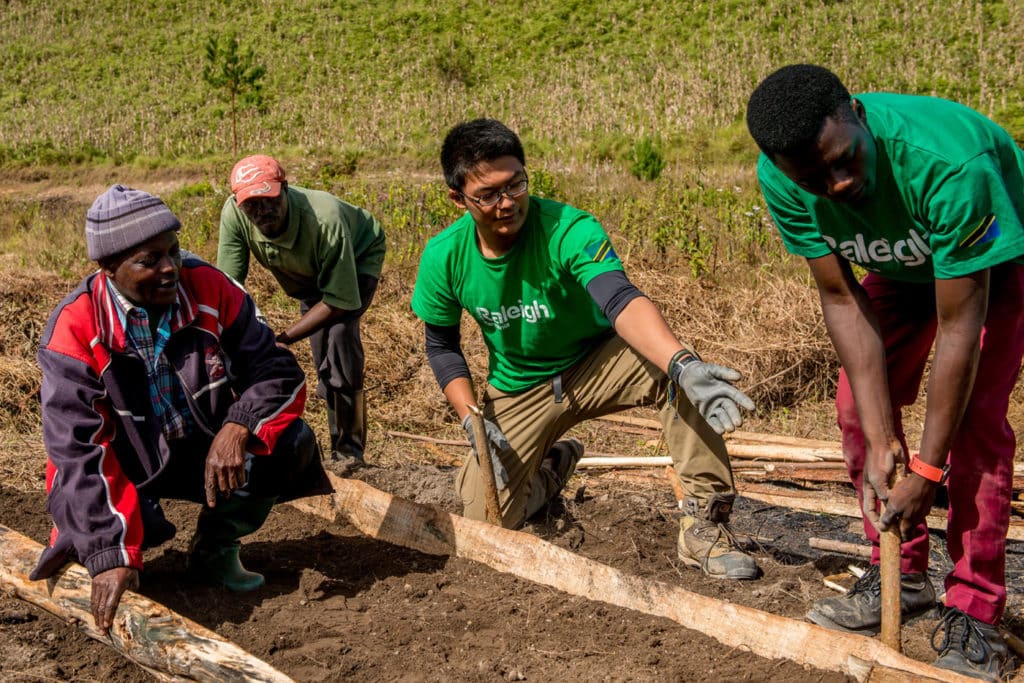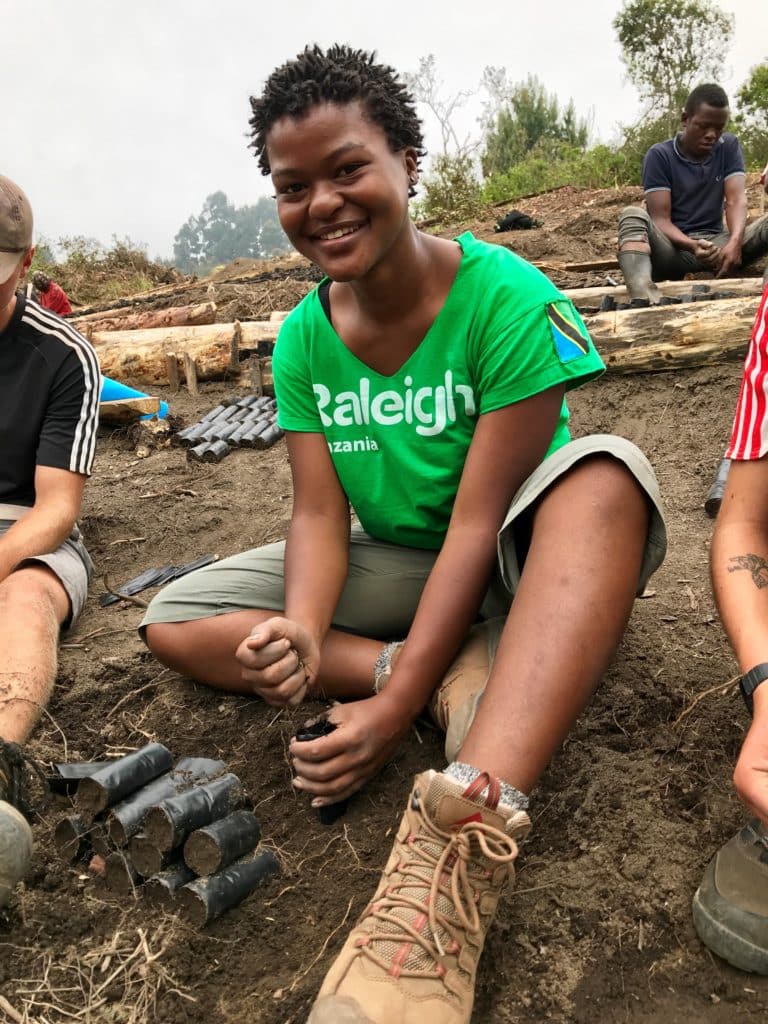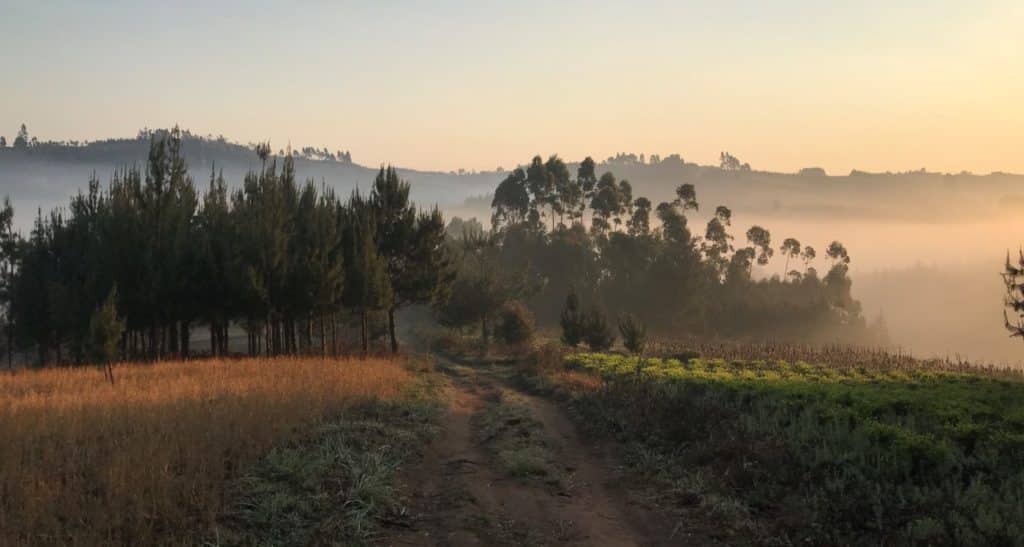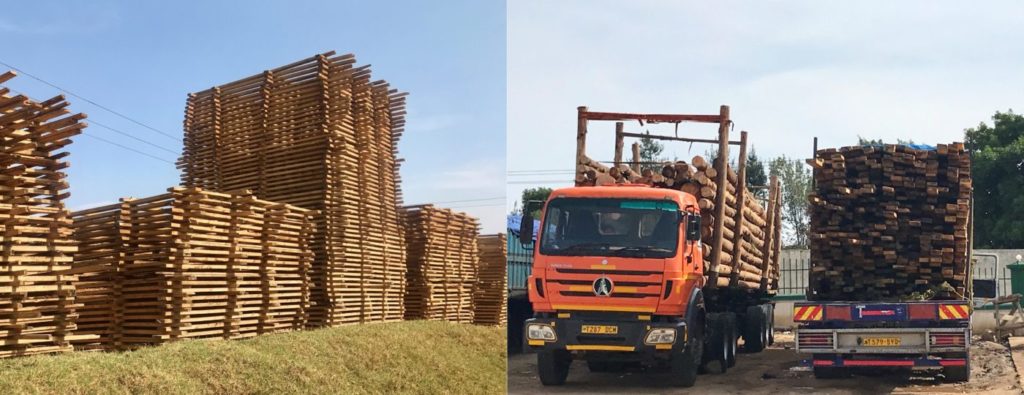Natural resource management: Seeing the bigger picture
A project taking place in the Iringa region of Tanzania intends to protect the region’s natural and ancient forests by planting almost 180,000 new trees and promoting alternative sources of income to timber.
The natural resource management (NRM) project, which is taking place in the villages of Mpanga and Mkonge in the district of Mufindi, is being delivered by Raleigh Tanzania in partnership with Mufindi District Council, the Tanzania Forest Conservation Group (TFCG) and is sponsored by UK sports and teamwear firm Chadwick Textiles.
With climate scientists stating that planting new trees and protecting existing forests will be a major factor in mitigating the effects of climate change, the projects in Mpanga and Mkonge will not only benefit the local communities but help to tackle a global issue.
Unlike Raleigh Tanzania’s water, sanitation and hygiene (WASH) or livelihoods projects that produce tangible outcomes in relatively short time periods – such as a new toilet block or the launch of a new business – the significance of this new NRM project is initially less obvious, with the benefits not becoming clear until years later. This has required the young Raleigh Tanzanian and international volunteers to adapt their way of thinking towards sustainable development, by adopting a long-term vision and understanding that it’s okay to be a small part of a much bigger picture.
Reducing the need to cut down forests
Tanzania’s forests, which make up around 40 per cent of the country’s total land mass, are under threat, largely because many people rely on timber for their livelihoods.
The creation of tree nurseries by TFCG and Raleigh volunteers alongside the community is the first step in establishing 180,000 new trees in the villages of Mpanga and Mkonge. TFCG expects that more than 90 per cent of the seeds planted will reach maturity.

After 15 years, using a rotation system, the villagers will then harvest part of this non-native, fast-growing crop and plant new trees to replace the ones cut down. This method provides a more sustainable solution for supplying timber, a major source of income for both communities.
TFCG has also been working in the district to provide shorter-term income opportunities, further reducing the need to cut down the natural and ancient forests. These include bee-keeping, fish-keeping, and avocado businesses, and more efficient cooking stoves.
In addition to supporting TFCG in providing theoretical and practical training to village members, the Raleigh volunteers are organising lessons and setting up an NRM club to raise awareness of environmental issues and change behaviours in both the short and long term.
Slowing down to make a change
During their time creating the tree nurseries, Raleigh volunteers in Mpanga and Mkonge have been adapting to a different work setting and reflecting on both local and global environmental issues.

‘I’ve really enjoyed working among nature and tubing [making tubes for the seeds],’ said Dainess Kaphas, a Raleigh volunteer from Tanzania.
‘It’s more slow-paced than the WASH project I worked in before this, where we were constructing a toilet block in a fast-paced environment. But this has given us the time to bond as a team and to think about the bigger picture.’
Dainess continued: ‘I’ve realised that although we are not building something that we will be able to physically see the result of, the impact it will have on protecting the natural forests and providing income for the local people will help future generations.
‘This has changed my view of sustainable development as a whole, because it has taught me that making a difference is not always a result of an obvious act,’ Dainess said.
Tessa Hogg, Deputy Operations Manager, added: ‘It’s a huge lesson for the volunteers, because everyone wants to have a tangible impact, but it’s important to learn that it’s okay to be a small part of what is going to be an ongoing issue in Mpanga and Mkonge, and an ongoing issue in the world,’ she said.
‘In a way, planting trees requires you to set aside your ego and your own expectations about what you personally are going to achieve or give back, because the trees won’t be mature for 15 years. Sustainable development is not just about the big dramatic actions.’
Working on part of a much larger project has also prompted the volunteers to think about how to approach sustainable development at home. Dintle Sebusi, a Raleigh volunteer from South Africa, said that the taking part in the project has changed her thoughts about the ways she can have a positive impact.
‘It is my dream to make the farm that my family owns completely organic and sustainable one day,’ she said. ‘But this can’t all happen at once – my family is making a good income from livestock, so making huge changes straight away will affect that. Just starting with organic vegetables will be a step in the right direction. Volunteering on this project has made me think about how the little things can make a big difference later.’
Mpanga and Mkonge, which are only a few miles apart, are located in areas of astounding natural beauty. Working and living in villages that are 2,000 metres above sea level, and surrounded by valleys and untouched forests, has forced the volunteers to not only take a step back and appreciate the natural environment, but think about their own environmental footprints.

‘Small changes that you can make in your life, even if it’s just reducing your own carbon footprint, or talking to people about how the products they use are contributing to deforestation over the world, is a big part of acting on global environmental issues,’ Tessa commented.
‘In a world where there is so much pressure on young people, it is important for the volunteers to slow down, to reconnect with the land and to feel the soil between their fingers. We’re used to a fast-paced life and instant fixes. We’re used to not thinking when we click ‘buy’. We’re not used to waiting for a tree to grow. But when it comes to climate change there are no instant fixes. What could be a more worthwhile use of time than planting a tree?’ Tessa continued.
On the drive into the villages, which are only a few miles apart, the volunteers saw the effects of deforestation first-hand, as large areas of forest were being cut down in full view.
‘Because we live in a very interconnected world, we can no longer say that every country is on its own. The deforestation we saw on the way to the project site is not a result of the actions of people in Tanzania, but of people all over the world,’ said Tessa.
‘Tanzania is responding to an increasing global demand for more products with a shorter life-span. We’ve all purchased cheap wooden furniture or palm oil products, without thinking about the contribution this has to deforestation and biodiversity across the world. We buy things because they are fashionable, rather than functional,’ Tessa continued.

‘It is isn’t about shaming or pointing fingers though, it’s about thinking when we buy and appreciating that we’re all part of the picture. Just like the human-wildlife conflict, we need to find solutions to our furious consumption of natural resources,’ concluded Tessa. ‘And that requires an understanding of a bigger picture, including our own consumption and the effect that has on communities all over the world.’
—
Words by Jessica Rowbury (Communications officer)



